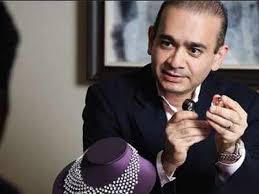Nirav Modi: A Deep Dive into His Ongoing Legal Troubles

Introduction
The case of Nirav Modi has captured global attention due to the massive financial fraud he is accused of, involving over $2 billion from India’s Punjab National Bank (PNB). His saga represents the intersection of high finance, international law, and ethical considerations in the world of business. As the legal proceedings unfold, the case remains relevant not only for investors but also for individuals interested in understanding the consequences of white-collar crime.
Background of the Case
Nirav Modi, an affluent diamond merchant, rose to prominence with his luxury jewelry brand, becoming a fixture in both Indian and international markets. However, his success came crashing down in early 2018 when allegations of his involvement in a massive banking scandal surfaced. Reports indicated that Modi had secured loans from PNB using fraudulent guarantees, which he allegedly used to settle debts and fund his lavish lifestyle.
Current Legal Proceedings
As of October 2023, Modi remains in the custody of UK authorities after being arrested in March 2019 at the request of Indian officials. His extradition to India has been a prolonged process, marked by multiple hearings in a UK court. Recently, a hearing began to address the appeal made by Modi against extradition, with arguments focusing on the fairness of the judicial process he would face in India. This trial could significantly impact the timeline of his return and the prosecution’s ability to present its case.
International Reactions
The case has drawn international scrutiny as it highlights issues related to financial governance and regulatory oversight. Many financial experts discuss how this situation could influence the banking sector, particularly in strengthening compliance measures among financial institutions. Moreover, observers point out that high-profile cases such as Modi’s raise questions about wealth management, accountability, and justice in cases of economic deceit.
Conclusion
The ongoing situation surrounding Nirav Modi serves as a critical reminder of the vulnerabilities within corporate governance and the financial system. As the case progresses, it underscores the importance of legal accountability in financial markets. The outcomes of this case not only affect Modi and his victims but may also resonate across global banking practices, possibly leading to reforms that enhance transparency and ethical standards in business practices. Stakeholders and the public alike will be watching closely as this high-profile trial unfolds.









